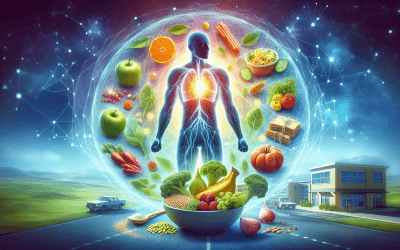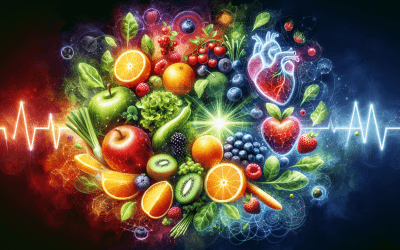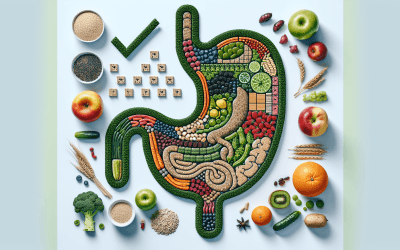Looking to improve athletic performance? Discover the vital connection between nutrition and sports at Eastside Ideal Health. Boost your game today.
Fuel Your Health, Transform Your Life
Nutrition Coaching in Redmond, WA
Get a Customized Plan and Expert Support
Locations in Redmond & Issaquah
Nourish Your Body from the Inside Out
If you're tired of one-size-fits-all diets and ready to make lasting changes, our personalized nutrition coaching at Eastside Ideal Health can help. We take a behavior-first approach that builds sustainable habits—not just meal plans—so you can feel better, move better, and live with more energy every day.
What Is Nutrition Coaching?
Nutrition coaching bridges the gap between knowing what to eat and actually doing it. Unlike restrictive diets or templated plans, we focus on small, strategic changes that fit your lifestyle. Whether your goal is fat loss, muscle gain, improved digestion, or better energy, we tailor your program to match your goals, schedule, and preferences.
Who We Work With
- Busy professionals struggling with consistency
- Active individuals looking to improve performance or recovery
- Patients managing inflammation, blood sugar, or chronic conditions
- People trying to rebuild metabolism or repair their relationship with food
- Anyone seeking guidance, support, and accountability
Our Coaching Process
1. Initial Consultation
We begin with a full assessment of your eating patterns, lifestyle, goals, and challenges. Together, we identify the key habits that will move you forward.
2. Customized Coaching Plan
Based on your needs, we build a personalized roadmap that may include weekly check-ins, habit tracking, progress monitoring, and ongoing feedback. This isn’t about perfection—it’s about momentum.
3. Accountability & Support
Your coach is there to keep you on track, adapt your plan as needed, and celebrate progress—whether that’s fewer cravings, better energy, or improved biomarkers.
4. Lifestyle Integration
We help you implement changes that stick. You'll learn how to make smarter food choices at restaurants, navigate cravings, improve meal prep efficiency, and develop a mindset built for long-term success.
Why Choose Eastside Ideal Health?
- Local experts serving Redmond and the Eastside
- Certified nutrition coaches trained in behavior change science
- Integrated approach with chiropractic, mobility, and functional health services
- No fad diets—just real, achievable results built around your lifestyle
- Virtual and in-person sessions for maximum flexibility
Frequently Asked Questions
- Is this the same as working with a dietitian?
- No. Nutrition coaches focus on habit change, education, and support. We do not diagnose or treat medical conditions. If medical nutrition therapy is needed, we can refer out or coordinate care.
- Do I need to track calories or macros?
- Only if it supports your goals. Many clients succeed using non-tracking methods like portion guides, visual cues, or meal timing strategies.
- Is this covered by insurance?
- Nutrition coaching is not typically covered by insurance, but HSA/FSA eligibility may apply. We can provide receipts for reimbursement when appropriate.
Start Building Better Habits
If you're ready to take the guesswork out of eating well, our team can help you gain clarity, build confidence, and create a plan that actually fits your life. Small changes, done consistently, lead to real transformation.
Book Your Nutrition Coaching Consultation
Related Services:
“
Testimonials
Fuel Your Body for Healing and Performance
Personalized nutrition plans support recovery, energy levels, and long-term health goals using real, sustainable strategies.
Whole-Body Wellness Starts with What You Eat
We help you make smart, balanced food choices that align with your lifestyle, activity level, and wellness objectives.
Guidance You Can Trust
Our coaches offer expert support, clear education, and accountability to help you build healthy habits that last.
Learn More About Nutrition Coaching
Nutrition Coaching Resources
How to Use Nutrition to Combat Inflammation
Learn effective ways to combat inflammation using nutrition. Achieve optimal health with the expertise of Eastside Ideal Health.
The Benefits of Antioxidants in Your Diet
Improve your well-being with antioxidant-rich diet. Experience the benefits of antioxidants with Eastside Ideal Health. Boost your health naturally.
Nutrition Tips for Managing Stress
Boost your well-being with nutrition tips for managing stress at Eastside Ideal Health. Discover effective strategies for a healthy mind and body.
How to Use Nutrition for Better Digestion
Discover the power of nutrition for improved digestion. Eastside Ideal Health provides expert tips and guidance for better gut health. Your journey to a healthier digestive system starts here.
The Role of Nutrition in Enhancing Athletic Recovery
Discover how nutrition plays a key role in enhancing athletic recovery at Eastside Ideal Health. Optimize your performance and reach peak levels naturally.
Contact Us For An Appointment
Get Relief
Clinic Hours
Monday-Friday: 730am - 6pm
Saturday: 9am - 12pm
Sunday: Closed






